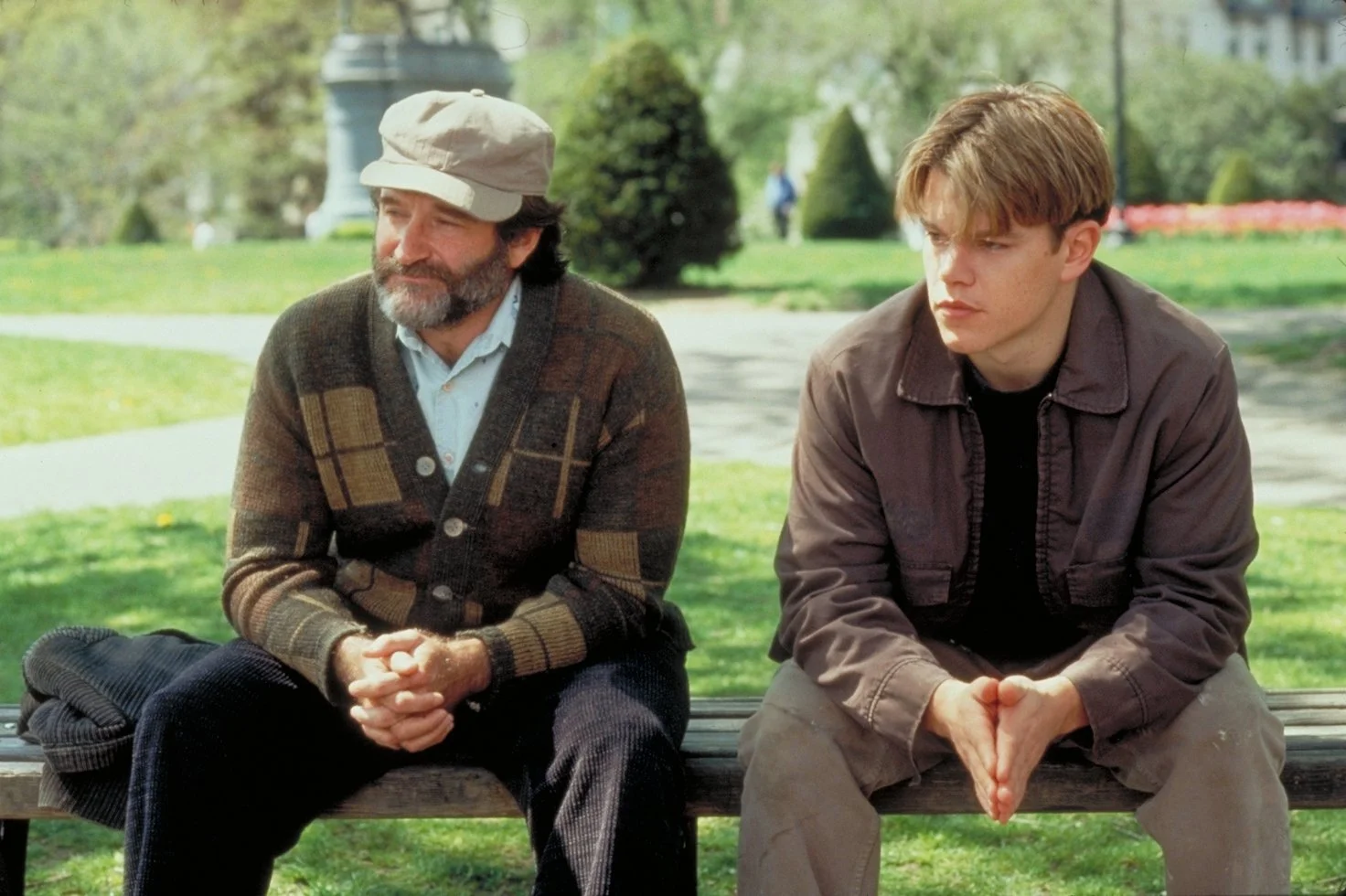Good Will Hunting
★★★ 1/2
It had been ages since I’d last seen Good Will Hunting, and honestly, I couldn't remember all the beats or what exactly made it so beloved. Rewatching it now, I realize that some people’s memory of this film may elevate it a bit beyond what it actually is—especially early on. The first act has some pretty rough patches, and I found myself wondering what exactly people were holding onto so tightly.
And then… Robin Williams enters.
From that point on, the film shifts entirely. The story of Will Hunting—a genius orphan working low-wage jobs in Boston while resisting every attempt to realize his full potential—suddenly deepens. His world is filled with rough-around-the-edges, blue-collar friends (played by a very young Ben Affleck, Casey Affleck and Cole Hauser), and the contrast between their lives and the academic elite who court Will’s brilliance becomes the emotional core of the film.
I think we were living in an era fascinated by raw, unfiltered genius. Films like A Beautiful Mind would come later, but Good Will Hunting really helped bring those stories into the mainstream. It’s not just about being smart—it’s about being seen, being known and deciding who you want to become, regardless of your circumstances.
Robin Williams’ portrayal of Sean, the therapist, is a masterclass in warmth, grief and grace. His therapy sessions with Will are where this movie truly comes alive. Their chemistry—Matt Damon's youthful volatility bouncing against Williams' quiet depth—is magnetic. Those conversations feel real in a way that still resonates today. Director Gus Van Sant knew exactly how long to let those scenes breathe. They’re emotional without being manipulative, raw without being overwrought. They carry the entire film.
Minnie Driver brings a welcome energy as Skylar, and while I’ve always found her acting hard to pin down, here she provides a strong counterbalance to Will’s closed-off nature. On the other end of the spectrum, I’m still not sure Cole Hauser even has lines in this movie—or if he does, they’re more like mumbles that evaporate into the Boston bar air. And that scene where Ben Affleck pretends to be Will during a job interview? It’s funny, sure, but feels like it wandered in from a different movie.
But that’s the thing. This movie is messy in spots—tonally, structurally—but it makes up for it in emotional payoff. The ending hits hard, and it sticks with you. Without Robin Williams (and honestly, Stellan Skarsgård too), I’m not sure it would have worked nearly as well. You can tell these veteran actors elevated everyone around them.
And you can't talk about Good Will Hunting without talking about Boston. This has to be in the Top 10 Boston movies ever made. It captures the city’s grit and pride, its intellectual tension and working-class soul, with real affection. The contrast between Harvard lecture halls and Southie backyards is more than just setting—it’s the heartbeat of the story.
So no, Good Will Hunting probably wouldn’t make my all-time favorite '90s films list. But it belongs to a specific era where character-driven drama could still break through, where people went to the movies to feel something, and where a script full of heart, soul and therapy sessions could turn two unknown writers into Oscar winners.
And that alone is kind of beautiful, right?
